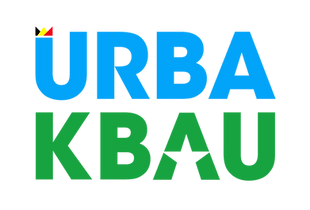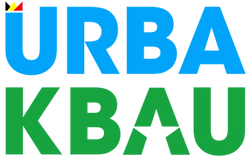Who are we
The president speaking
The Union Royale Belgo-Africaine, or URBA for short, is a non-profit organization dedicated to preserving the precious heritage that Belgians and Africans, from 1885 to the present day, have bequeathed to history, thanks to their commitment to the development and prosperity of the continent… more
Associations
Find out about our partner associations
ABC
Alliance Belgo-Congolaise (association de fait)
Avenue de la Gombe École Belge, local n°57, Commune de la Gombe, Kinshasa
République Démocratique du Congo
Afrikagetuigenissen vzw
vzw
Leuvensesteenweg 352, bus 201,
3070 Kortenberg
AP KDL
Amicale des Pensionnés des Réseaux Ferroviaires Katanga-Dilolo-Léopoldville asbl
secrétariat@tuma-mashua.net
C/o Françoise De Greef,
Avenue du Bourgmestre Jean Herinckx 16/7, 1080 Bruxelles.
ARAAOM
Amicale Royale des Anciens d’Afrique de Liège (association de fait)
Rue du Laveu 97,
4000 Liège
ASAOM
Amicale Spadoise des Anciens d’Outre-Mer (association de fait)
Vieux château, Rue François Michoel 220-222,
4845 Sart-lez-Spa (Jalhay)
C.R.A.A.
Rue Commanster 6, 6690 Vielsalm
CRAOM
Cercle Royale Africain et de l’Outre-Mer asbl
Koninklijke Afrikaanse en Overzeese Kring
CRNAA
Cercle Royal Namurois des Amis d’Afrique asbl
Adresse : Rue du Premier Lancier 1,
5000 Namur
Adresse courrier : Rue JB Naviaux 39b,
6812 SUXY (CHINY)
MDC
Mémoires du Congo du Rwanda et du Burundi asbl
c/o M. Guy Lambrette
Avenue de l’Hippodrome 50,
1050 Bruxelles
MUSAFRICA
Musée Africain de Namur asbl
Adresse : Rue du Premier Lancier 1, 5000 Namur
Adresse courrier : C/O Bibliothèque Communale, Venelle des Capucins 6, 5000 Namur
NIAMBO
(association de fait)
C/o Françoise De Greef,
Avenue du Bourgmestre Jean Herinckx 16/7, 1080 Bruxelles
RCLAGM
Royal Cercle Luxembourgeois de l’Afrique des Grands Lacs (association de fait)
Rue des Déportés 1, 6790 Messancy
URCB
Union Royale des Congolais de Belgique (association de fait)
Avenue Van Overbeke 222 boite 40,
1083 Bruxelles
URFRACOL
Union Royale des Fraternelles coloniales (association de fait)
Rue de la cible 17,
1030 Bruxelles
VVPF
Vriendenkring Voormalige Force Publique (association de fait)
Res. Stuyvenberg
Gistelsesteenweg 21 bus 22,
8490 Varsenare
A.D.A. Asbl
Afrique Développement et Avenir
31, Allée des Genêts
5540 Hastières-lavaux
Who are we
Vision and objectives
At a time when collective memory is constantly being reinterpreted, the Union Royale Belgo-Africaine (URBA-KBAU) recognizes the complexity and plurality of historical narratives linked to the Belgian colonial period in Central Africa. It believes that it is crucial to engage in a process that enables us to understand this past in all its diversity, avoiding the pitfalls of a univocal, truncated vision that would serve neither the truth nor fruitful dialogue between peoples.
Vision and objectives of the Royal Belgian-African Union (URBA-KBAU)
At a time when collective memory is frequently reinterpreted, the Union Royale Belgo-Africaine (URBA-KBAU) notes the plurality of historical narratives linked to the Belgian colonial period in Central Africa. It believes that it is necessary to engage in a process that enables everyone to know this past in all its diversity, avoiding the pitfalls of a univocal, truncated and non-contextualized vision that would serve neither the truth nor understanding between peoples.
The deep regret expressed by His Majesty King Philippe for the suffering experienced during colonization is an important step towards greater mutual understanding. However, URBA-KBAU believes that we should not stop at the negative aspects alone, but also recognize the positive results which, in the end, have shaped current relations between Belgium and its former colonies.
URBA-KBAU aims to highlight the multiplicity of colonial memories and encourage reflection that embraces all facets of this era. It is imperative to avoid a biased reading of history, which would foster resentment in a society that wants to be diverse and respectful of everyone’s contributions.
With the intention of promoting constructive dialogue and close cooperation, the URBA-KBAU has assigned itself the following tasks :
- To promote a plural and serene knowledge of colonial history, revealing both its failures and common successes ;
- To defend the honour and dignity of the peoples of Belgium, Congo, Rwanda and Burundi;
- To exercise zero tolerance towards discrimination and racism ;
- To encourage mutual respect and friendship between Belgians and people from Central African countries; while supporting integration and better coexistence between communities ;
- To pursue the expansion of institutional and personal contacts through joint achievements and initiatives that play to the benefit of both sides.
A call for commitment
The URBA-KBAU does not depend in any way on political support or subsidies. It therefore appeals to all those who endorse its aims to support them and thus strengthen its capacity for action. It invites everyone to join its constructive and open approach so that together we can make a positive difference.
Who are we
History
The Cercle Royal Africain was founded on December 7, 1889 and chaired by General Albert Thys, the illustrious creator of the Bas-Congo railroad linking Matadi to Léopoldville. The association had two aims: to foster patriotism among its members, and to develop a center for union, exchange of ideas, documentation and enjoyment. It met regularly at 5 Place Royale, in the Globe tavern.
At the celebration of its 50th anniversary in 1939, the association had 651 members.
On 1 June 1951, the Union Royale Coloniale Belge was founded in Brussels as an umbrella for the circles of friends of veterans that had already sprung up in various cities in the country, as well as the associations that were to follow later.
History
The Cercle Royal Africain was founded on December 7, 1889 and chaired by General Albert Thys, the illustrious creator of the Bas-Congo railroad linking Matadi to Léopoldville. The association had two aims: to foster patriotism among its members, and to develop a center for union, exchange of ideas, documentation and enjoyment. It met regularly at 5 Place Royale, in the Globe tavern. At the celebration of its 50th anniversary in 1939, the association had 651 members.
On 1 June 1951, the Union Royale Coloniale Belge was founded in Brussels as an umbrella for the circles of friends of veterans that had already sprung up in various cities in the country, as well as the associations that were to follow later.
The Royale Union Coloniale Belge was founded with the generous support, firstly, of H.M. King Albert I, who personally granted the new organization a large subsidy, then of powerful commercial companies, and finally of the official participation of the government of the day. Minister of State Auguste Beernaert, who had been one of King Leopold II’s most loyal supporters, had an extraordinary credit entered in the 1912 budget for the new association, which became the owner of the building at 34 rue de Stassart. Among the founders, apart from Auguste Beernaert, were Jules Renkin, Minister of Colonies, Minister of Justice de Landsheere, MP Louis Franck (Minister of Colonies from 1918 to 1924) and MP Frans Van Cauwelaert. The Higher Committee of the Royal Colonial Union was chaired first by Auguste Beernaert and, after his death, by Gérard Cooreman, President of the House of Representatives.
The association had several objectives in mind ; first, propaganda in favour of colonial action, in addition, the organisation of conferences, the launching of an information service and of an African library, the setting up of preparatory courses for all those aiming at colonial careers, for whom no education was organised.
As the Fédération des cercles coloniaux, it concentrated the collective action of the groups and provided them with premises for their activities. On December 18, 1912, the Cercle Royal Africain moved from Place Royale to rue de Stassart.
Whereas eleven circles had contributed to the founding of the Royale Union Coloniale in 1912, by the time it celebrated its twenty-fifth anniversary in 1937, the organization had grown to 52. It had organized 2,782 conferences, created a library of over 7,000 volumes, many of which were the unique remains of defunct collections or out-of-print editions, and its colonial preparation courses had been attended by 4,264 students, 88% of them surveyors.
After the independencies in the 1960s, the clubs incorporated cooperators and the association then changed its name to “Union Royale Belge pour les pays d’Outremer” for short (UROME)
In 2019, the association’s new management, under the impetus of the Board of Directors, organized the first Summer University of the association to rethink its future and ensure its sustainability. Thus, at the end of a democratic and participatory process, the Association was renamed “Union Royale Belgo Africaine – Koninklijke Belgisch Afrikaanse Unie” (abbreviated URBA-KBAU).
This update of the statutes with a new name is justified by the evolution of relations between Belgium, Congo, Rwanda and Burundi and a dimension deliberately adding the future, taking into account the role, sensitivities and growing place of the diasporas in these relations. URBA is now open to Congolese, Rwandan and Burundian associations wishing to support its mission to strengthen cooperation and friendship between these countries, while respecting their shared history and looking forward to a mutually satisfying future.

Who are we
Objectives
Hereafter we sum up the goals of URBA, as they are mentioned in article 4 of the revised statutes of the association; The mission of URBA is the following :

Promoting
The collective remembrance of what the Belgians have realized in Congo, Rwanda and Burundi together with the local population.

Keep safe and stimulate
The privileged bonds between Belgium, Congo, Rwanda and Burundi.

Coordinate and take to heart
The collective interest of their members

Unite
Unite
The Belgians, Congolese, Rwandese en Burundese who wish to participate to the creation of dynamic en positive relations between their respective countries.

Contribute
To bringing the population of the four countries closer to each other by an efficient approach to all forms of disinformation about them and to the promotion of the collective registration of a fact based and scientific history of their relations

Explore, study and propose
Strategies of cooperation that are fruitful for all the populations involved.
Statutes
